Table of contents
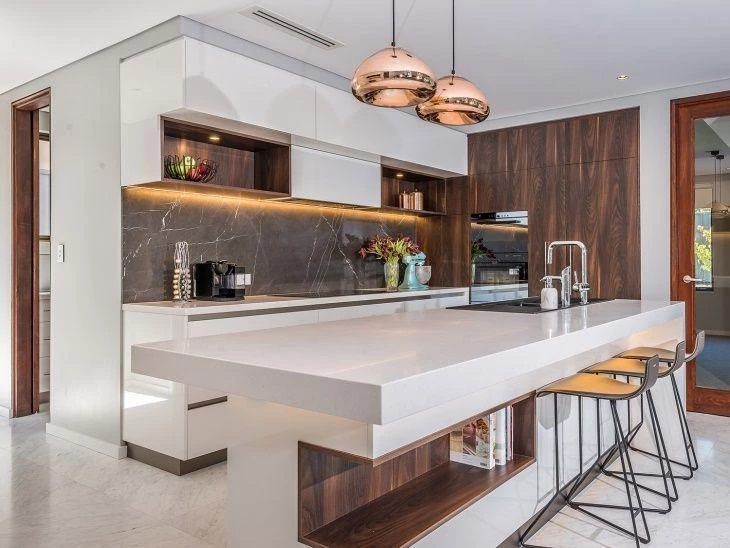
The search for technologies to create new materials is constant in the construction industry: from time to time a revolutionary technique or even a new resource appears that will be used to provide more beautiful and practical homes.
Nanoglass is a great example of this trend. It can be defined as an industrialized material, produced basically from resources such as resin and glass powder. The result of this mixture is a highly durable material, with an intensely shiny surface and crystallized finish.
Its name gives away how it was produced: through a process using nanotechnology with a fusion technique, and its uniform appearance is reminiscent of the appearance provided by the use of glass.
According to architect and interior designer Avner Posner, the emergence of this material occurred due to the great market demand for floors and countertops that were homogeneously white, a rare characteristic among materials found in nature, such as marble or granite.
See_also: Bookshelf: 60 beautiful models to decorate and organizeAdvantages and characteristics of nanoglass
Among its main characteristics, we can cite the fact that nanoglass is a durable material, more resistant than marble and granite, with low porosity, no staining or graying, good resistance to abrasives and acids, homogeneous color, and intense shine.
For the architect Avner Posner, the advantages of choosing this material are especially in its polished, high gloss surface, the low porosity of the material, allowing it to be applied in extremely humid environments, "in addition to the ease of cleaning and the fact that it does not show stains and stains", he adds.
The professional also warns about the necessary care when handling and installing: "because it is a very rigid material, misuse can cause cracks and splits that cannot be repaired.
See_also: 50 bathroom fixture models to renew the spaceDespite having the possibility of being produced in a wide range of colors, here in Brazil nanoglass is only found in the white option, since it is imported from other countries.
Another detail that deserves attention is to avoid the contact of kitchen utensils with high temperature, since nanoglass is produced with glass, which can cause cracks.
Difference between nano-glass and marmoglass
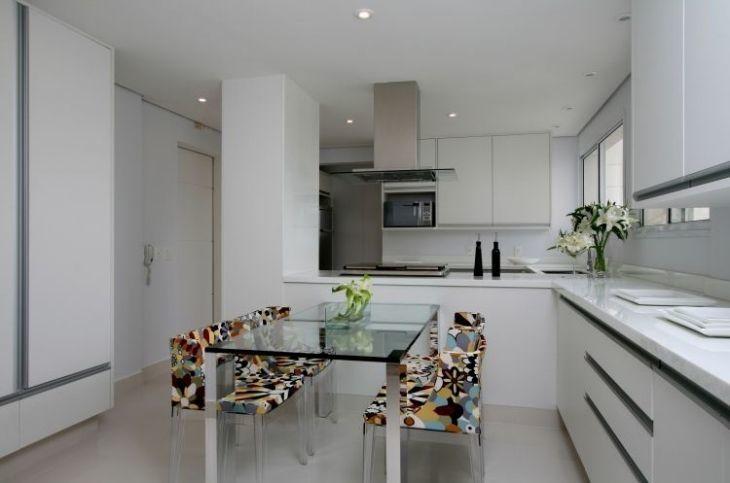
Similar materials are produced with the same technique, but with different materials: while nanoglass uses resin and glass powder, marmoglass uses marble powder and glass.
Although both have a high degree of hardness and low porosity, the only one that achieves a uniform color is nanoglass, as marmoglass has small black dots on its surface.
"The production and composition of the two are similar, but I highlight that nanoglass is the evolution of marble, due to its more homogeneous color, a 'whiter white', besides being more resistant," explains Avner.
The professional also explains the difference between nanoglass and other materials such as marble, granite, and silestone: "Marble and granite are natural stones, and do not have any homogeneity in their appearance, the former being more fragile and more porous, more prone to chipping and staining.
Silestone, on the other hand, just like nanoglass and marble, is made industrially, and although it does not have a homogeneous finish, the material is highly resistant and accepts touch-ups and amendments.
How much does nanoglass cost per m²?
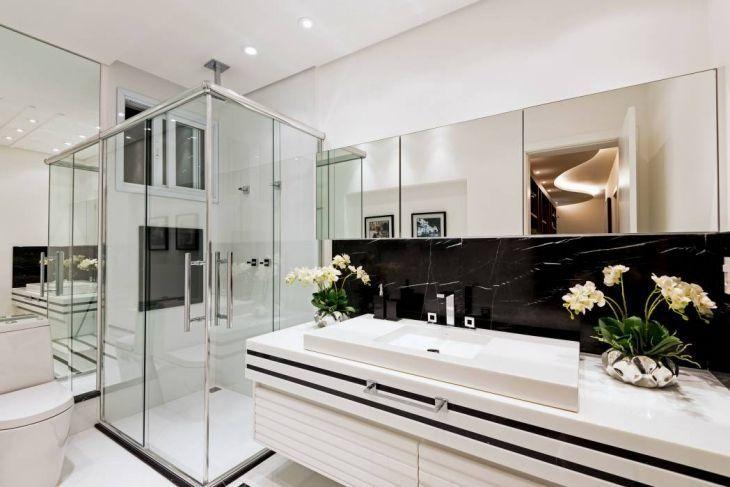
According to a quotation made by the professional, the commercial value of nanoglass can vary a lot, ranging from R$900.00 to R$1,500.00, depending on the location researched. The high cost is justified by its characteristics, besides being an imported product.
40 environments with nanoglass composing the decoration
After learning about its characteristics, advantages, and disadvantages, how about seeing the application of this material in practice? Then check out below a selection of beautiful environments using nanoglass and get inspired:
How about a beautiful and imposing staircase made with nanoglass?
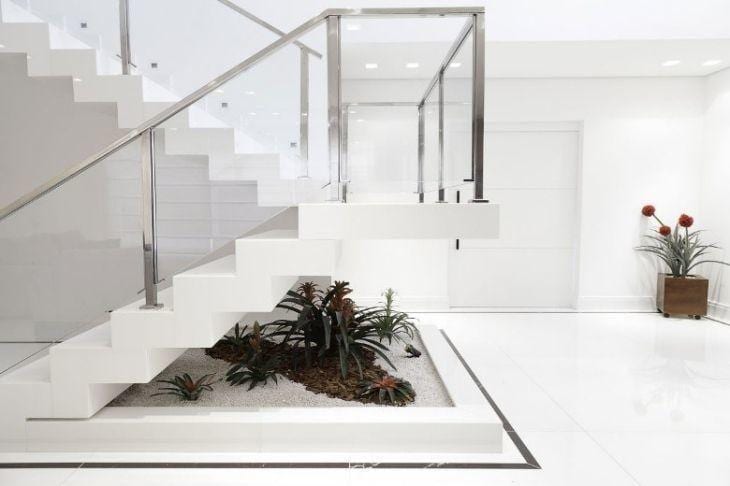
2. its shine is also present in the floor of this residence
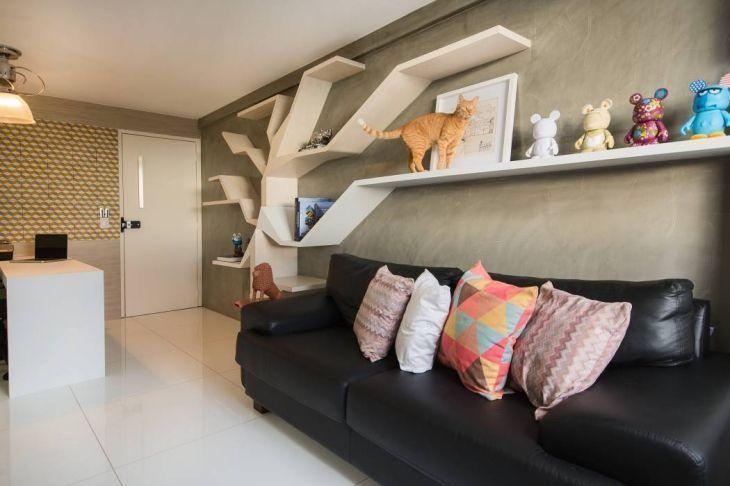
3. different environments using this material
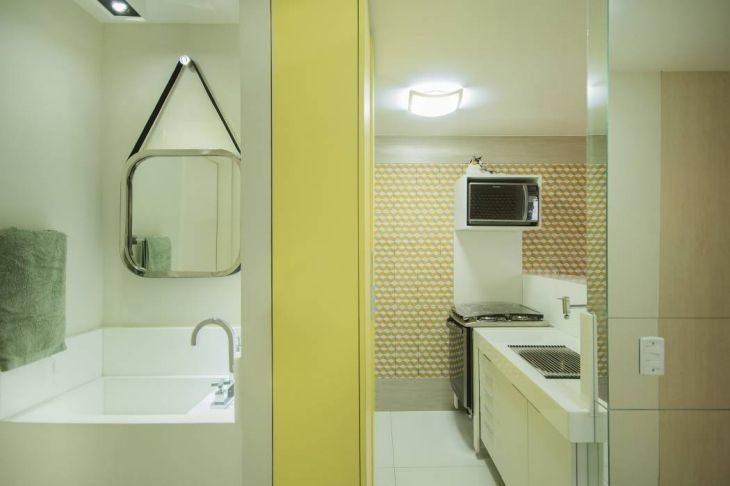
4. the bench dividing the rooms also uses this resource
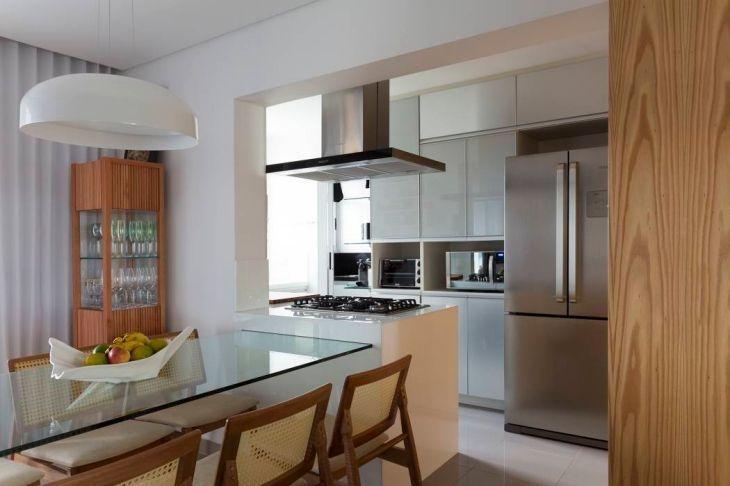
5. an all white environment, with the carpet providing a touch of color
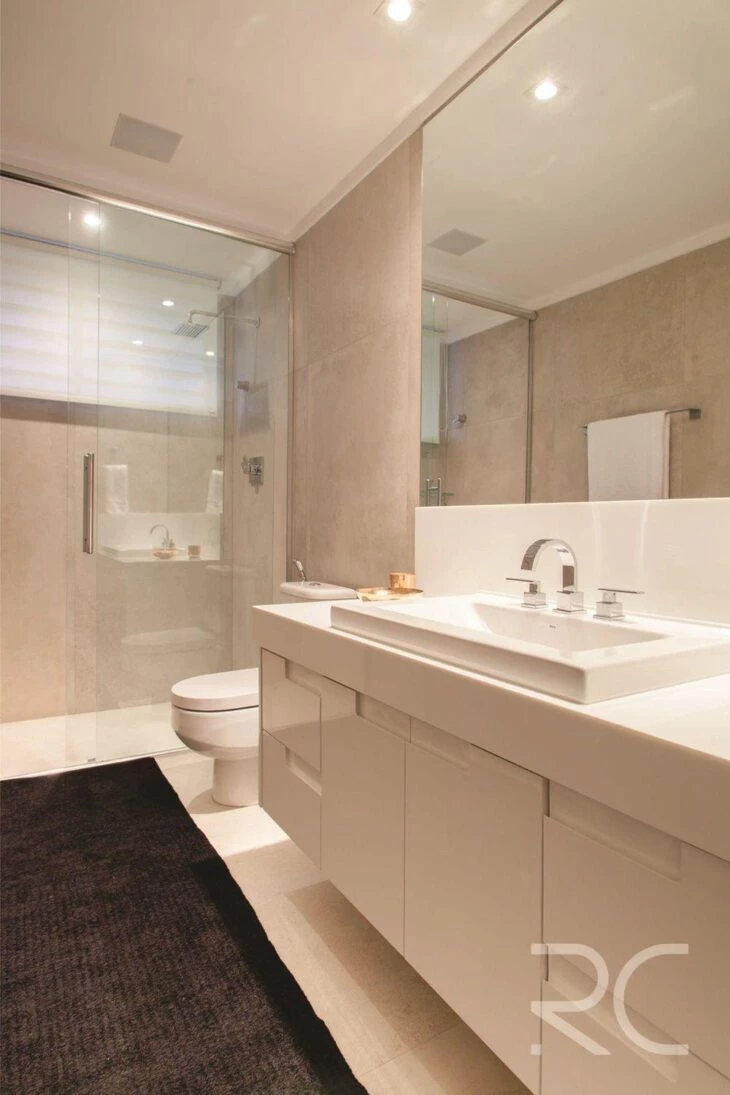
6. bathroom with nanoglass countertop in harmony with the mirror's golden color

7. chosen for the countertop, nanoglass provides a clear and clean environment
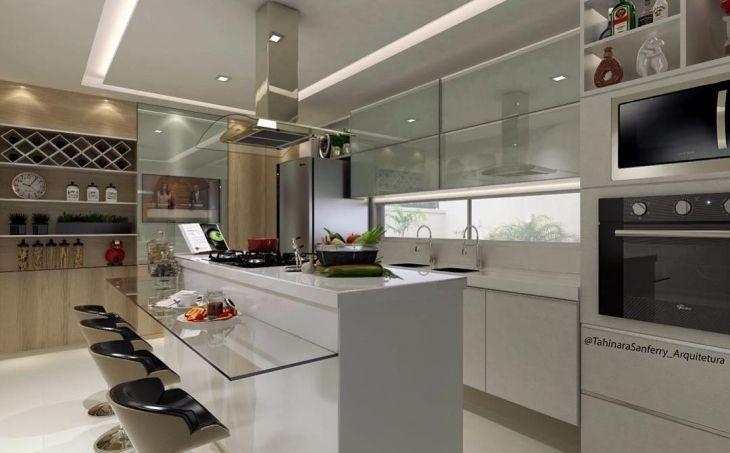
8. the black and white duo is unbeatable when it comes to style

9. ideal option to balance the excess color of the tiles on the wall
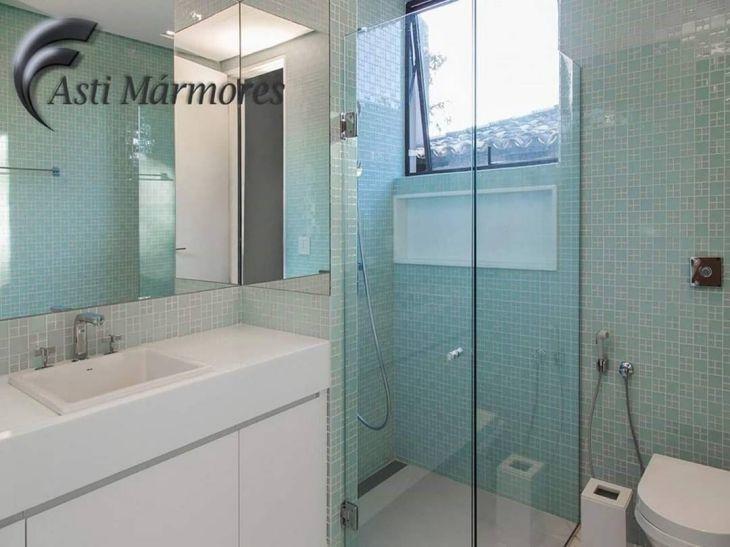
10. perfect match for light-toned wood
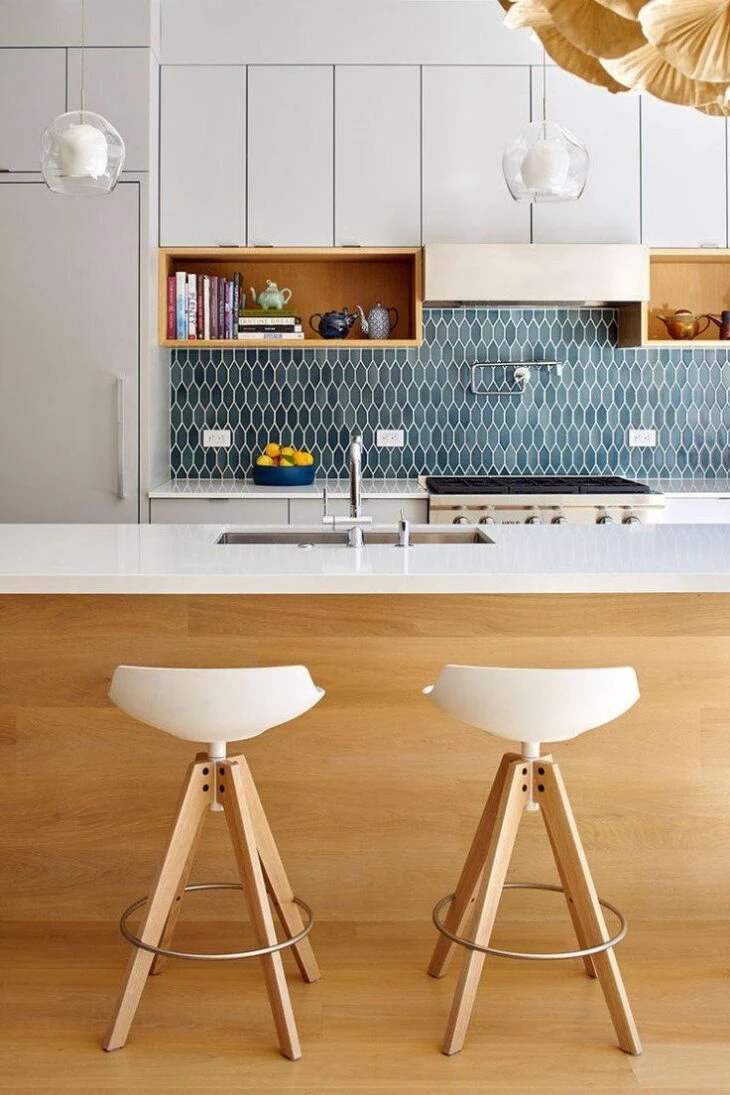
11. for a special charm, bet on cabinets in stronger shades
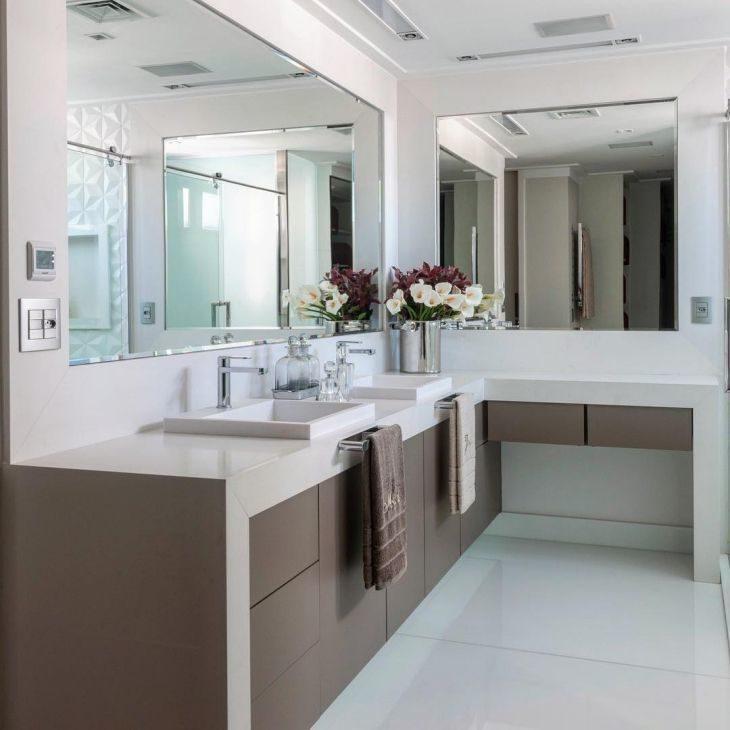
12. the white countertop makes the colored wall stand out

13. how about extending its use to the balcony?
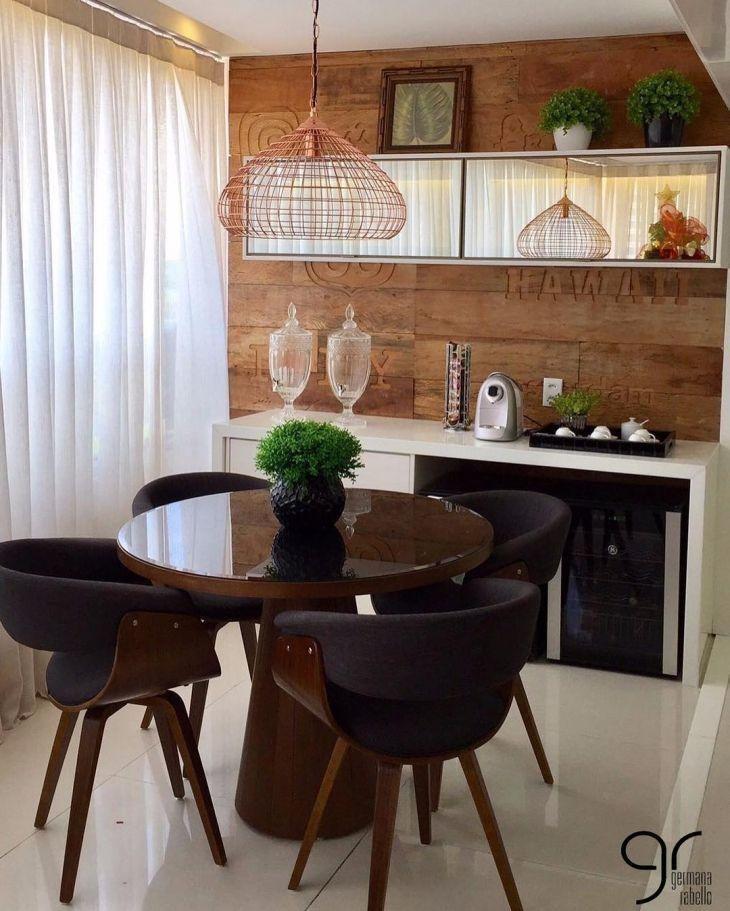
14. making its presence felt again on the balcony, now on the sink countertop

15. here the nanoglass adds its shine to the kitchen table
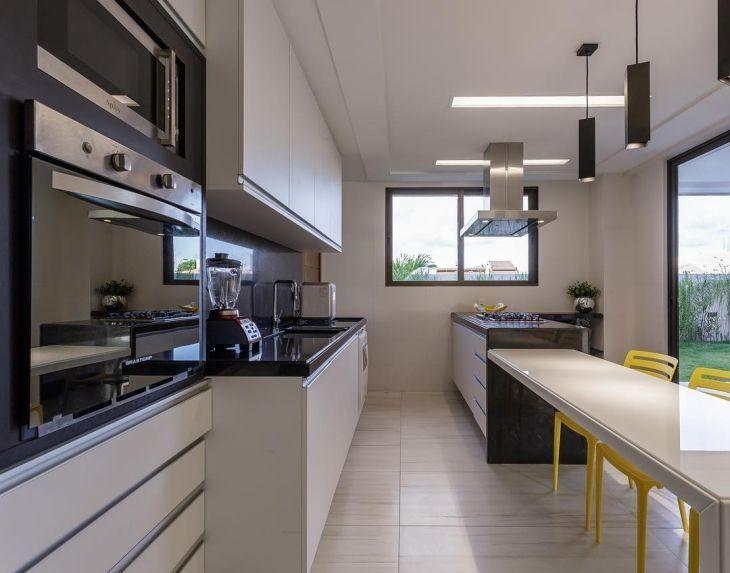
16. gray and white for a neutral but stylish environment
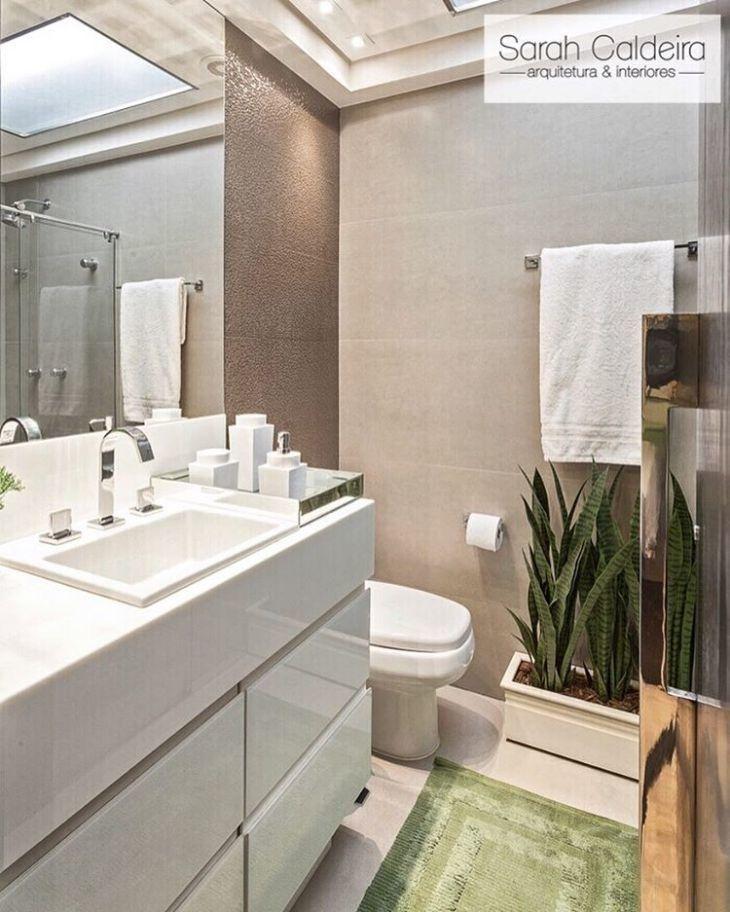
17. bright bathroom, with white all around
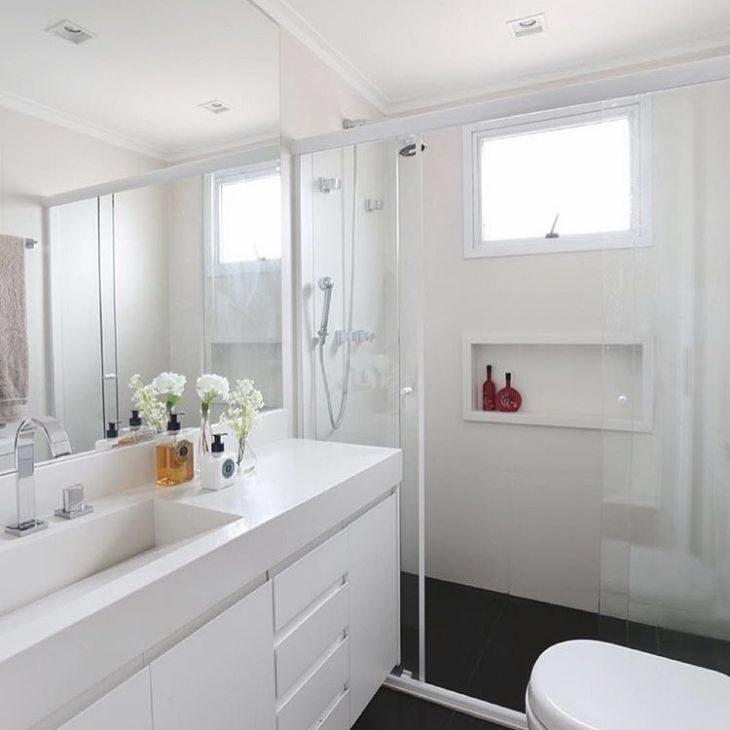
18. your kitchen will look great with nanoglass countertops

19. sober kitchen abusing nanoglass

20. all kitchen countertops in nanoglass
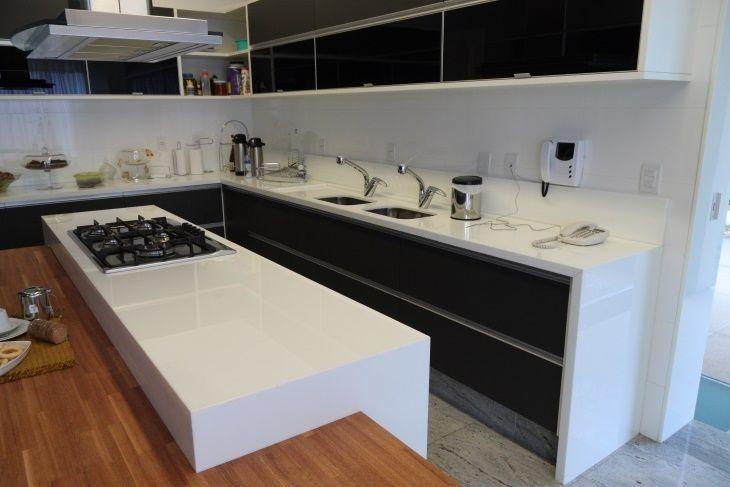
21. even smaller countertops deserve the charm of nanoglass
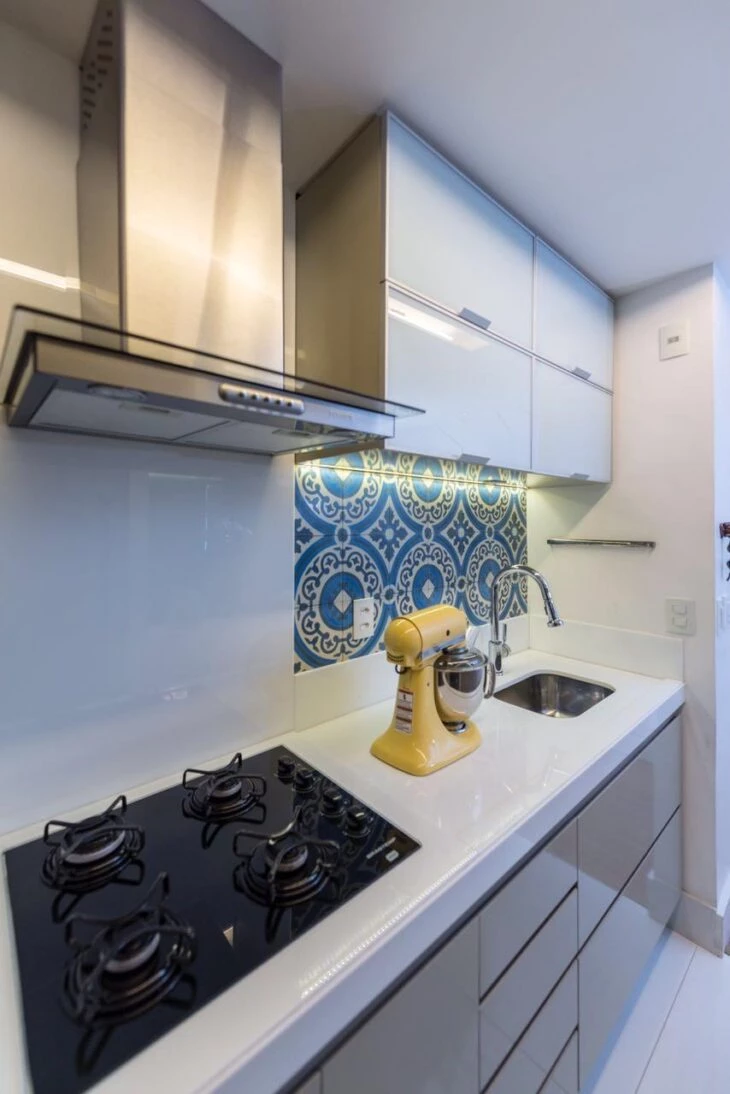
22. neutralizing and balancing the room
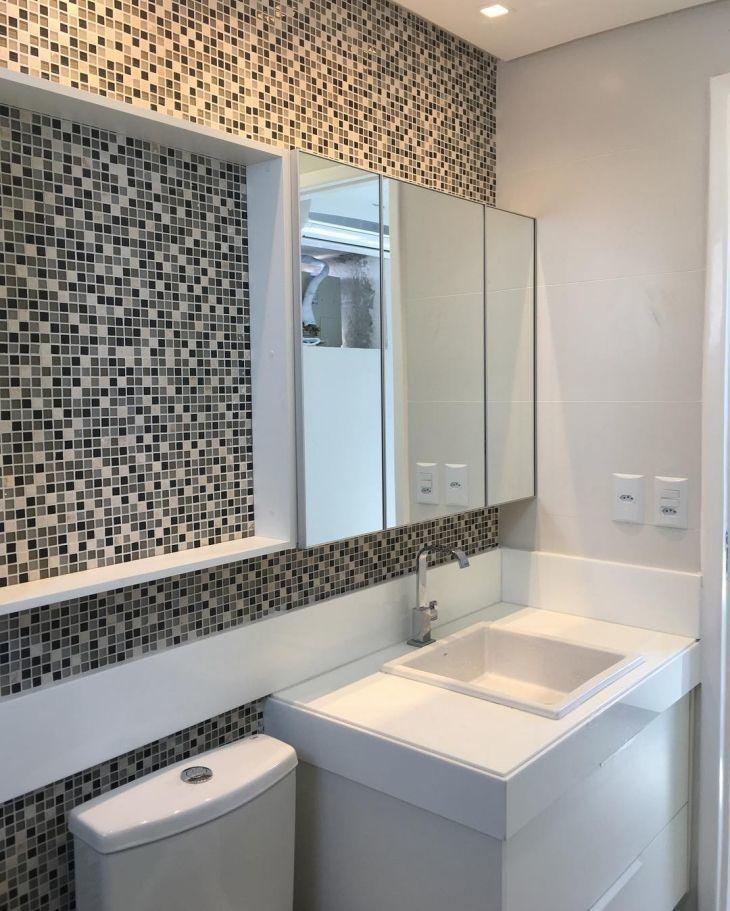
23. in this project, the tub is also carved directly in nanoglass

24. the wallpaper is highlighted by the use of nanoglass
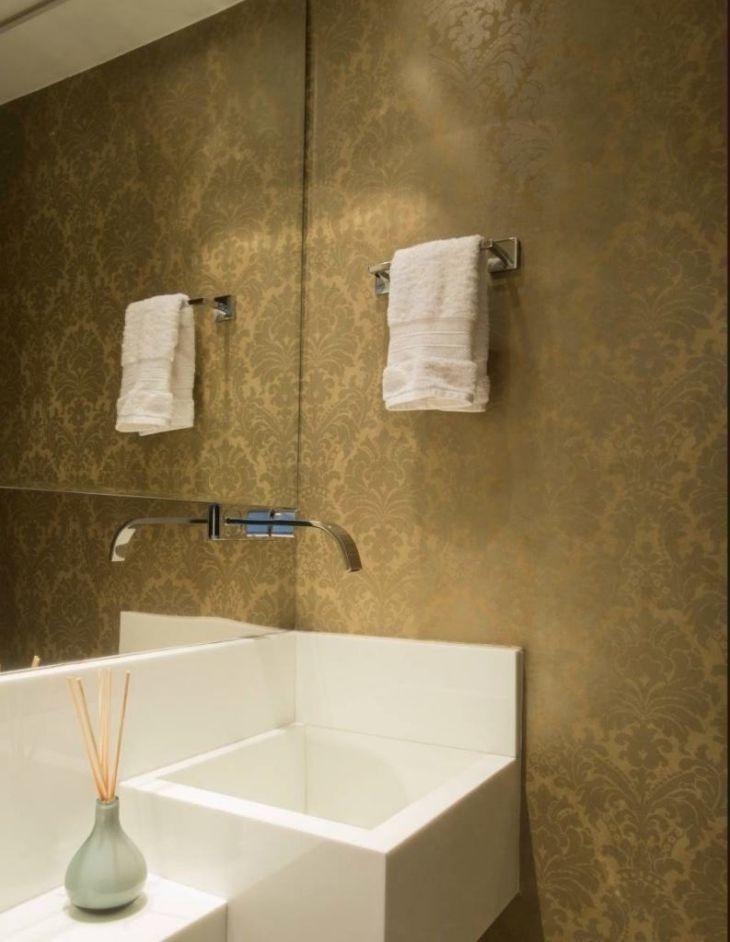
25. the right choice for this bathroom with a purple washbasin
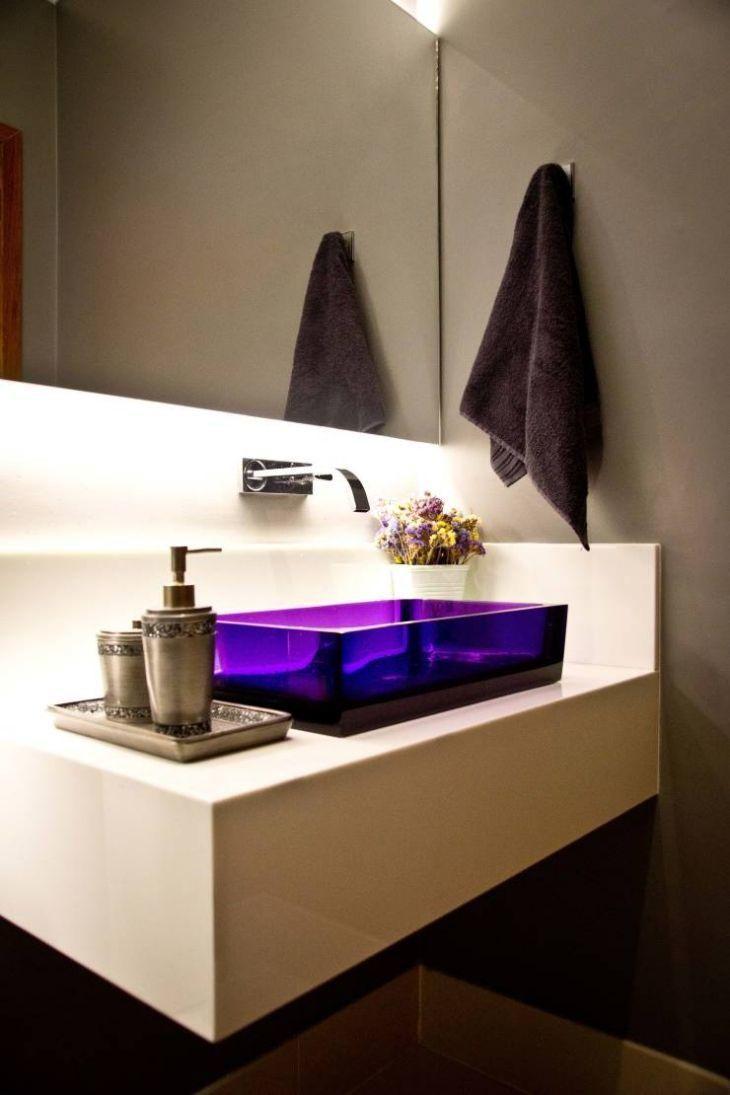
26. figuring in the island of this kitchen all worked in wood
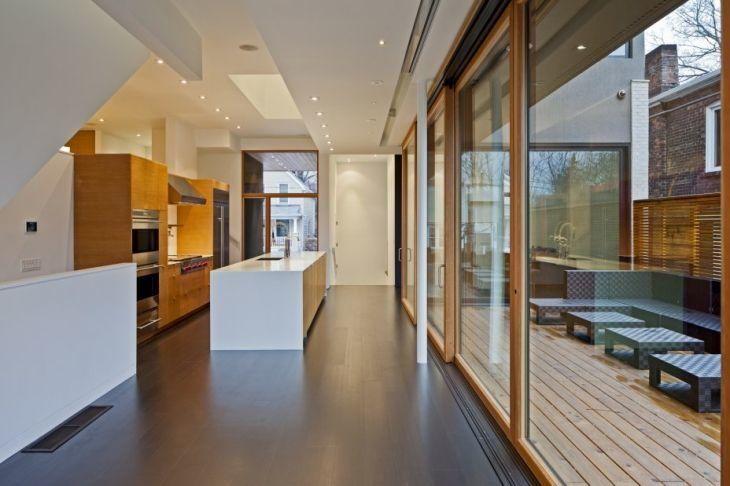
27. perfect for a marble-covered environment
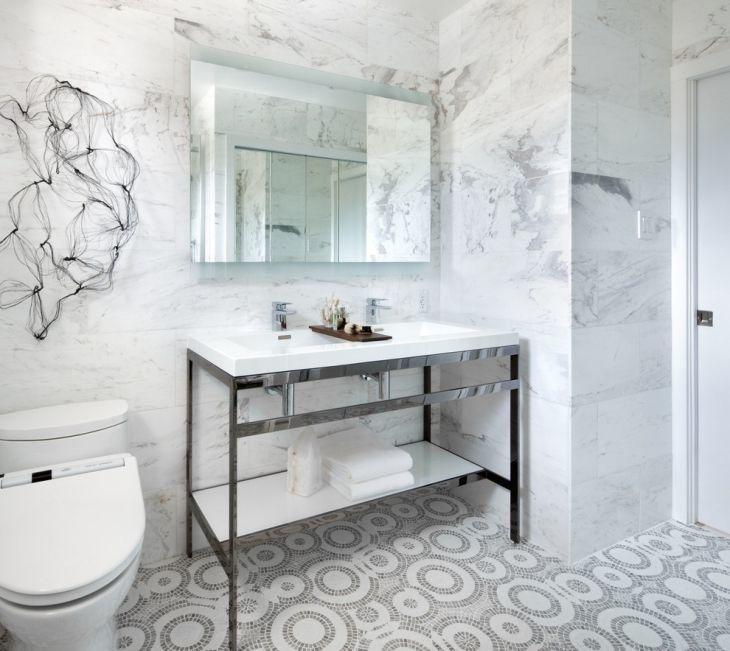
28 Here, besides composing the island, nanoglass also appears on the counters
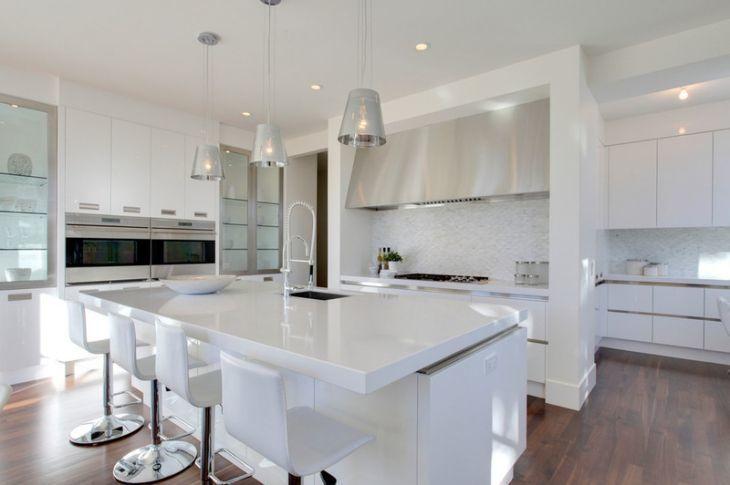
29. environment using and abusing nanoglass

30 - In addition to being used on the countertop, it is also used around the bathtub.
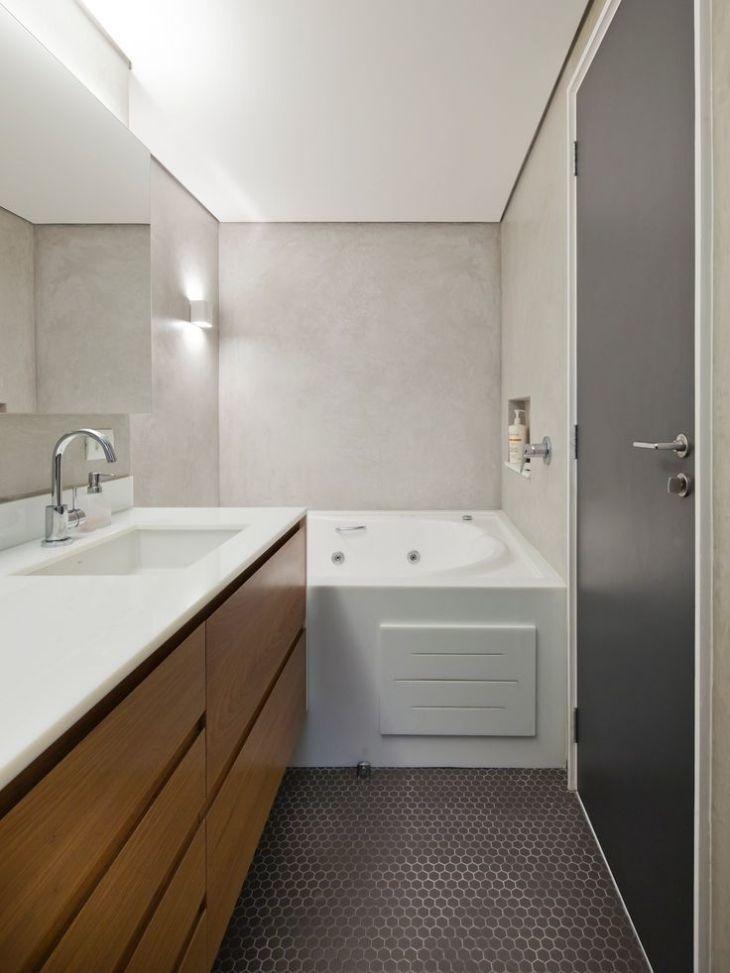
31. countertop of differentiated design, conferring elegance to the environment

32. in the gourmet balcony, integrating sink, stove and barbecue
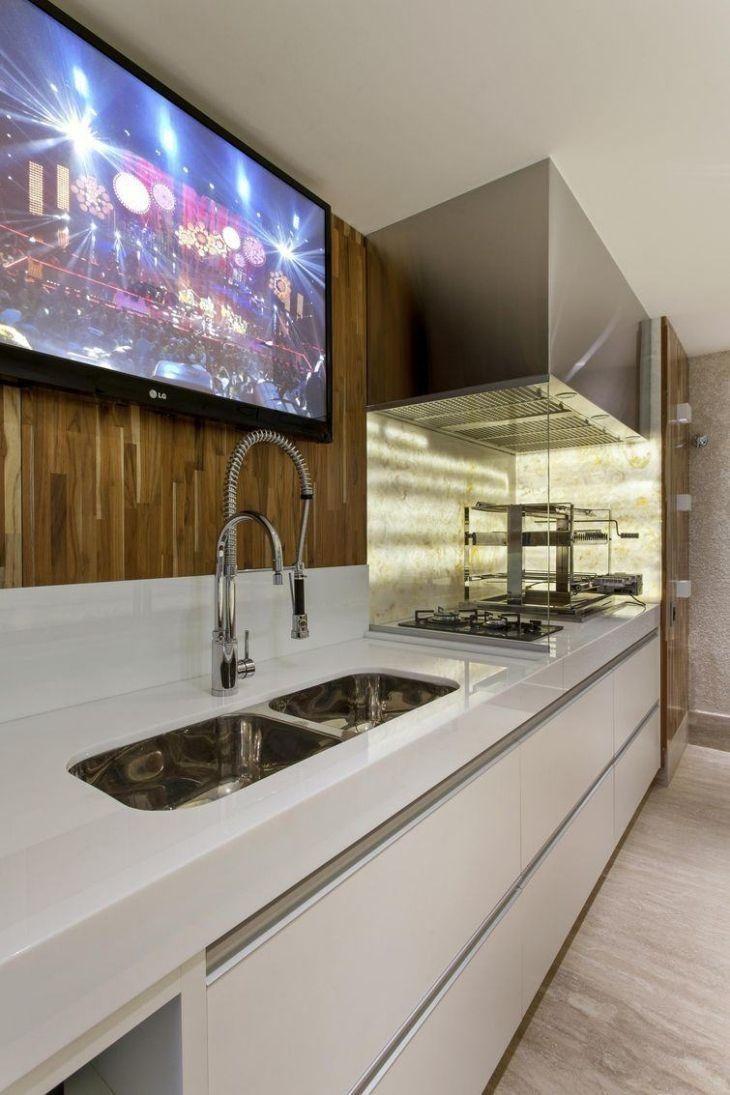
33: Integrating environments, with a bright and shiny countertop
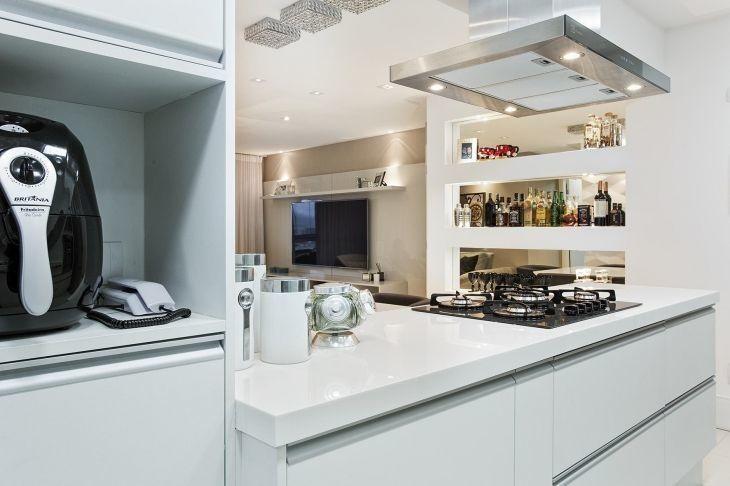
Its shiny surface reflects the beautiful chandelier
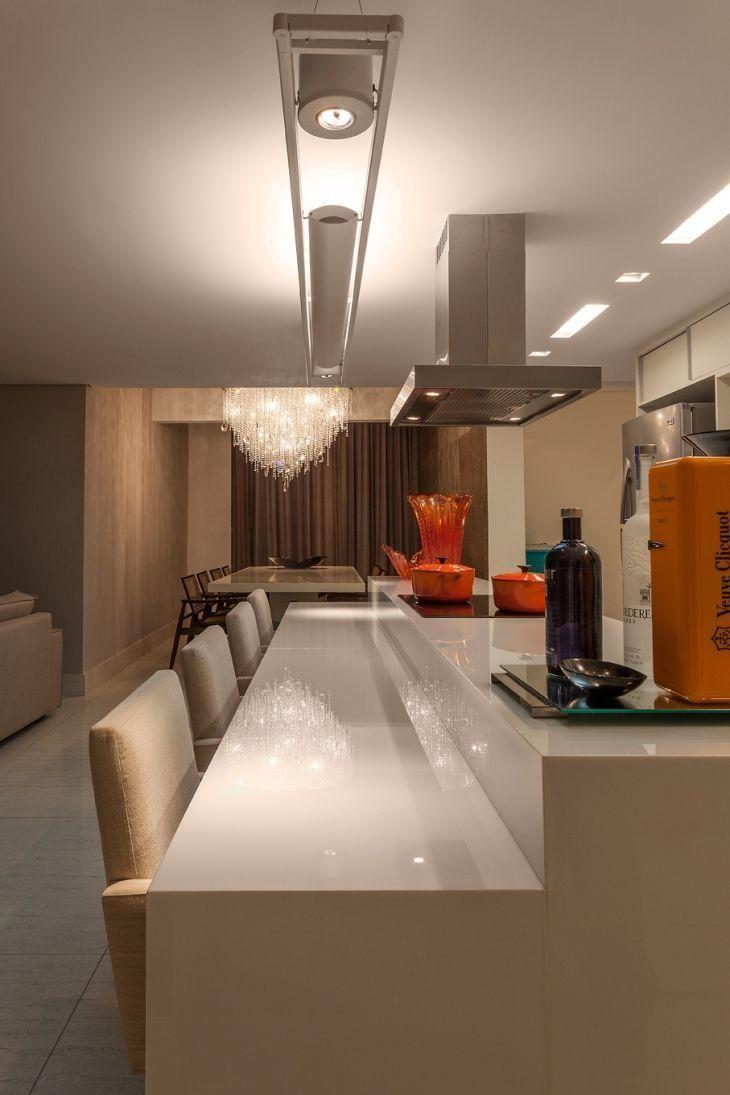
35. infallible combination: nanoglass and wood
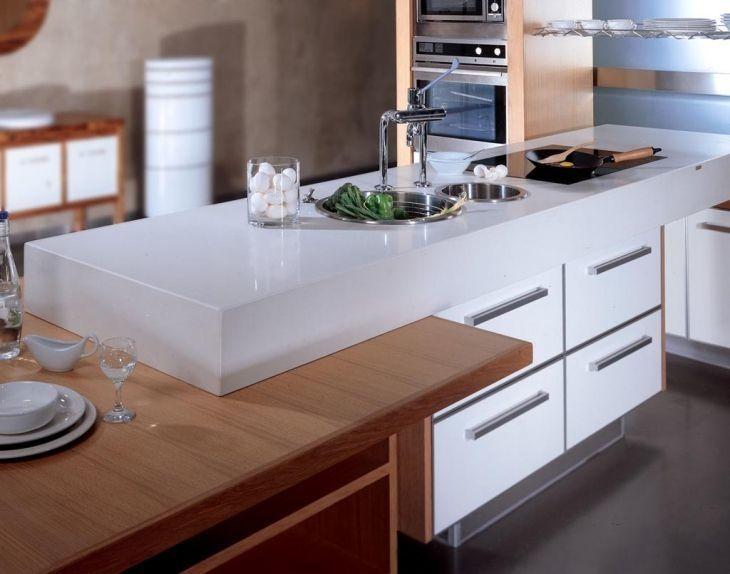
36. nanoglass flooring for an elegant and shiny ambience
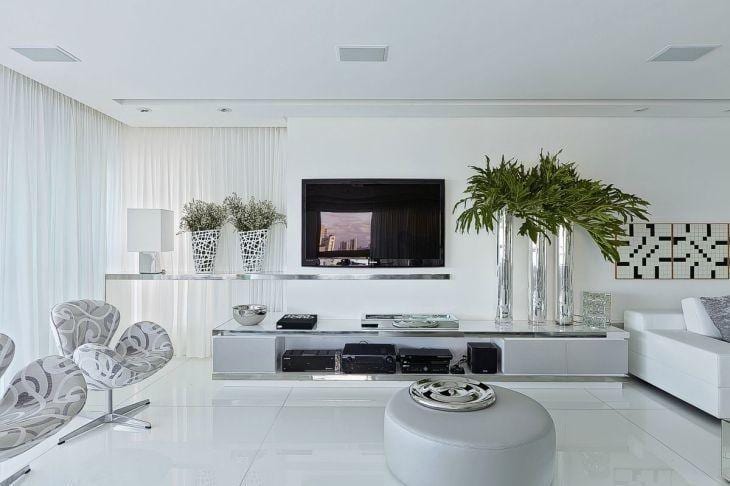
37. ladder with differentiated design, also using this resource

38 Another example of nanoglass embellishing the balcony
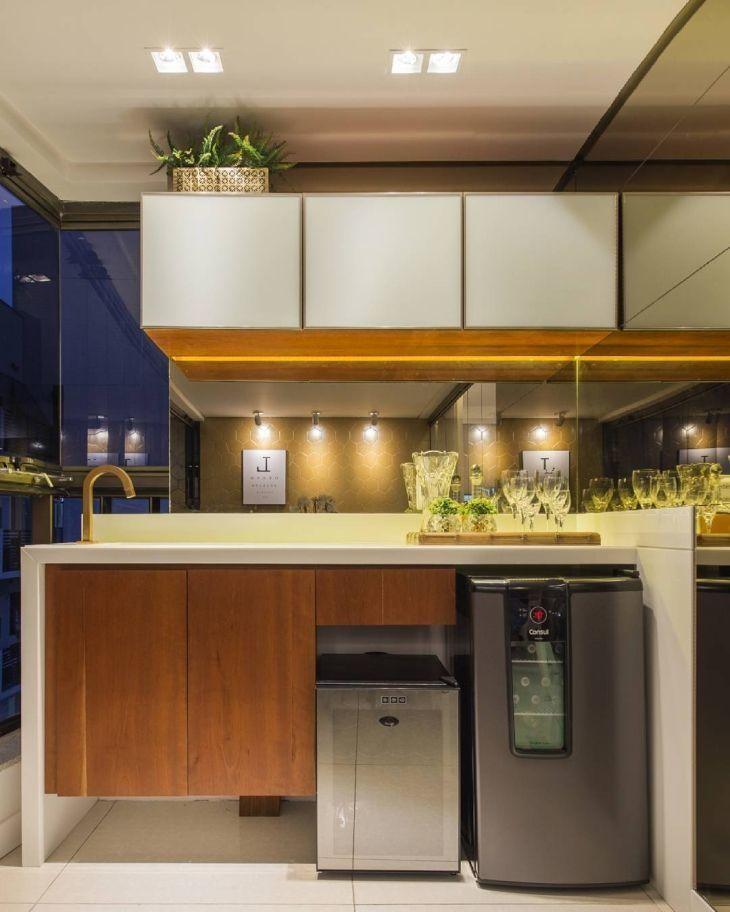
39 - And why not use it as a wall covering?
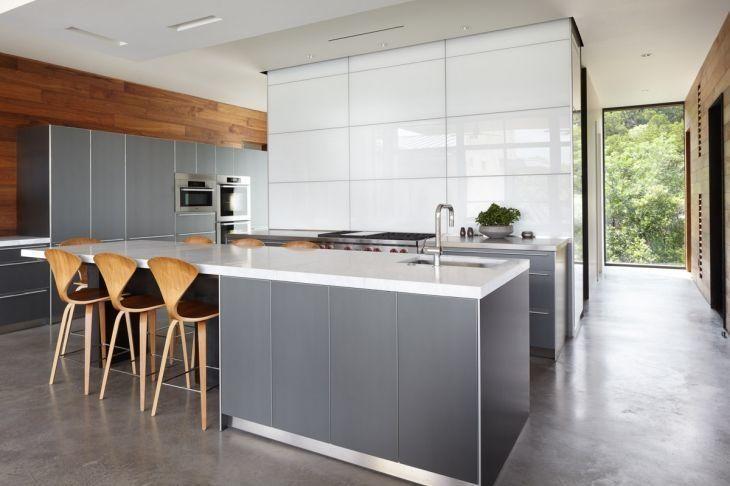
How nanoglass surfaces are cleaned

Regarding its cleaning, the architect recommends avoiding abrasive products, and recommends that the maintenance be done using simple cleaning products and a soft sponge. Soapy products are welcome, but, if you wish, just use a damp cloth to remove the dust or superficial dirt.
The architect Avner Posner also indicates that, periodically, a marble worker be called in to polish the surface, keeping it with its beautiful glazed finish in perfect condition.
A current option, nanoglass can be used on floors as well as in kitchen or bathroom countertops. With remarkable characteristics, its uniform design and high resistance show that this is a material that is here to stay.


